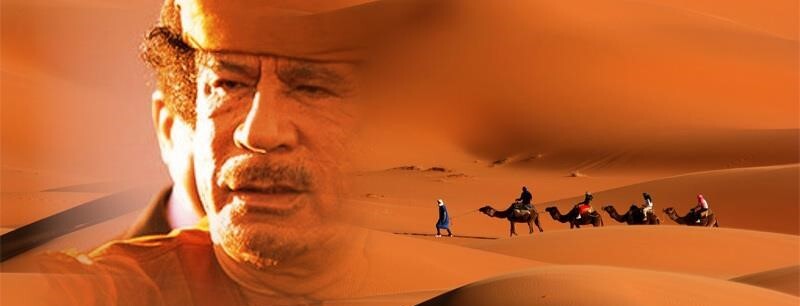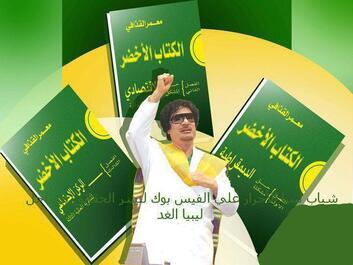

The Green Book - rejecting world liberal democracy based on electing representatives as well as capitalism or socialism. Instead, it proposes direct democracy which allow direct political participation for all adult citizens in public congresses (Libyan Jamahiriya had more than 6000 "Basic People Congress"

Muammar Al Gaddafi’s The Green Book is a provocative and controversial political manifesto that challenges traditional forms of democracy. First published in 1975, this three-part treatise proposes a "Third Universal Theory" as an alternative to capitalism and communism, focusing on direct people's authority rather than representative government.
In the first part, The Solution of the Problem of Democracy: The Authority of the People, Gaddafi argues that parliamentary systems and political parties do not truly represent the will of the people. Instead, he proposes a system of direct democracy through popular congresses and people's committees.
The Green Book is both revolutionary and polarizing. It played a central role in shaping Libya’s Jamahiriya political system and continues to provoke debate among scholars, political theorists, and activists worldwide. Gaddafi’s unique interpretation of democracy and governance challenges Western democratic norms and provides insight into the ideological foundation of his leadership.
Whether viewed as visionary or authoritarian, The Green Book remains a significant text in understanding alternative models of governance and political thought in the 20th century. It is essential reading for anyone interested in Middle Eastern politics, revolutionary theory, and critiques of liberal democracy.
Muammar Al Gaddafi states in the Green Book, that "Freedom of expression is the right of every natural person, even if a person chooses to behave irrationally, to express his or her insanity."
However, freedom of speech is based on PUBLIC ownership of book publishers, newspapers, television, and radio stations, on the grounds that private ownership would be undemocratic.